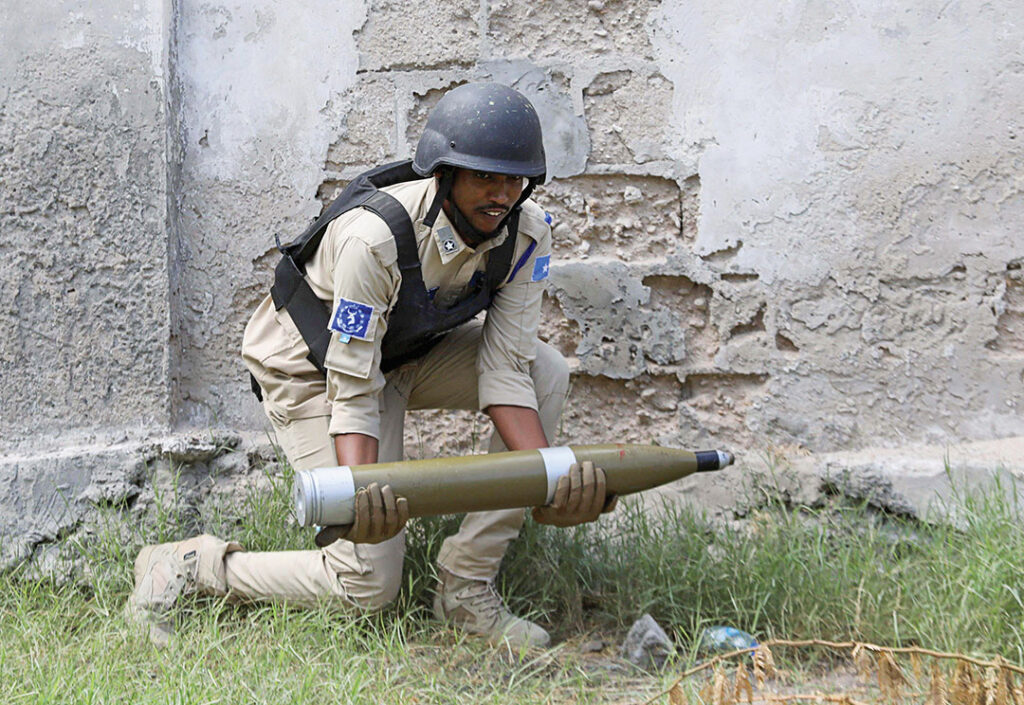Photos by Reuters
Somalia, which has been engulfed in conflict since 2009, now has two systems struggling to exert control — the established federal, regional and local governments, and the extremist group al-Shabaab.
Although fragmented by years of military defeats and infighting among its leaders, the al-Qaida-aligned group remains a major presence in Somalia, where it continues to try to impose its strict system of fundamentalist law. The group generates a tremendous amount of revenue, estimated at $100 million annually, compared to the $300 million collected by the national government.
Al-Shabaab’s revenues support a well-armed network of 5,000 to 10,000 fighters. The money lets the group fund regional supply channels while maintaining what researcher Wendy Williams calls a “phantom presence” of alternative government throughout the nation.
“Al-Shabaab extorts revenue from various aspects of everyday Somali life — from toll roads to property taxes — building on its cultivated reputation of omnipresence and intimidation,” Williams wrote in a 2023 study for the Africa Center for Strategic Studies (ACSS). “Al-Shabaab has also compromised various government agencies including, for example, acquiring freight manifests from port employees enabling it to extort shipping companies upon arrival.”
The group’s “taxes” actually are nothing more than extortion.
“Its taxation produces some services for those who live under the group as well as some services available to those who use the group’s courts or roads,” Tricia Bacon wrote for the George Washington University Program on Extremism. “But the demands of the extortion system outstrip the services provided and mainly provide protection from the group. It threatens, kidnaps, and even kills those who do not pay its taxes. The group has become so effective at extortion that it runs an annual surplus, and some argue that it is more of a mafia than an ideological organization at this point.”
The terrorist group has used its money to undermine many of the government’s traditional services, including its courts system. Government officials say there are people who go to al-Shabaab “courts” to get justice because government court decisions aren’t enforced.
“For those using them voluntarily, pull factors include a reputation for lowered levels of corruption, less discrimination based on clan and high enforcement capacity compared to the government judicial system,” Omar Mahmood of the International Crisis Group told Voice of America. “The courts themselves are not always that sophisticated and the threat of brutal forces underpins them, but at the end of the day they have shown to be more effective in addressing the needs of some populations.”
The terrorist group exploits gaps in national governance by offering partnerships and bolstering local leaders of clan militias in Hirshabelle and Galmudug states.
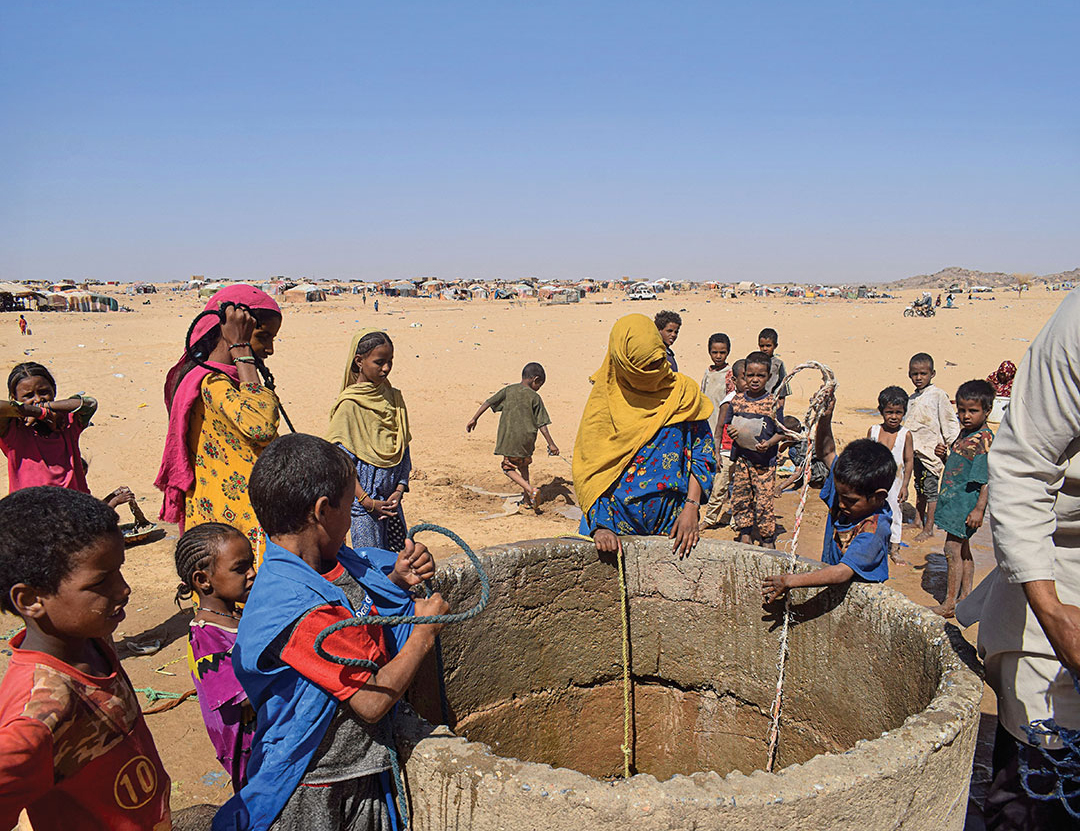
ACROSS THE CONTINENT
Other terrorist groups in Africa increasingly exploit government service gaps to establish shadow governments, which offer alternative power structures that sometimes provide social services, enforce laws and collect taxes. In addition to Somalia, parts of Burkina Faso, the Democratic Republic of the Congo, Mali and Nigeria have come under the control of terrorists and renegade groups.
In Mali, the al-Qaida affiliate Jama’at Nusrat al-Islam wal-Muslimin (JNIM) has become a controlling force and is spreading its influence across other parts of the Sahel. In addition to imposing a harsh interpretation of Shariah, it is acting as a security force and a protection racket.
The terrorist group is responsible for thousands of deaths in recent years. Along with its direct violence, JNIM controls access to basic services, capital and transport, “allowing it to exert pressure on the fundamental aspects of everyday life that can lead to the slow demise of livelihood felt by all civilians there,” according to researcher Tammy Palacios, writing for New Lines Institute in 2024. “This explains JNIM’s success in expanding its control.” She noted that the group has disrupted civilian movement and access to food, water, cellular communications, electricity and other services.
“JNIM conducts checkpoints on roads within areas of its control,” Palacios wrote. “JNIM fighters stop passenger vehicles, commercial trucks, pickups transporting goods and livestock, and transport buses. ‘Taxes’ on such goods are common, as is outright looting. JNIM sells livestock it has stolen elsewhere. It has its tentacles in almost every aspect of society in areas it controls.”
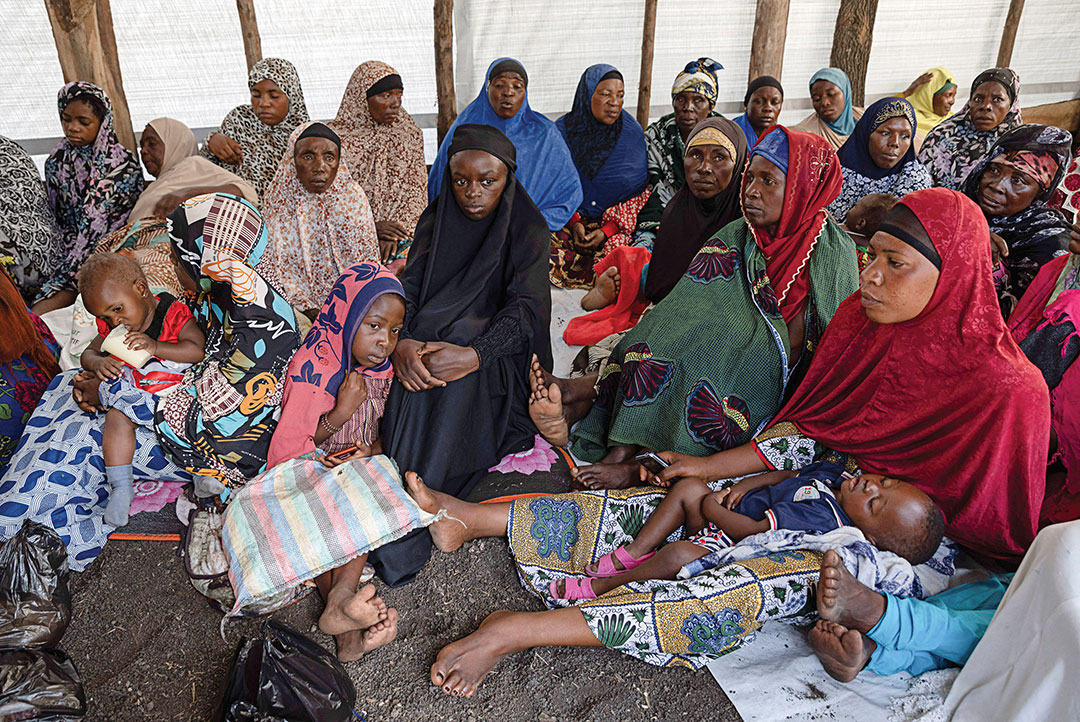
In Nigeria and other parts of the Sahel, Boko Haram and al-Qaida in the Islamic Maghreb (AQIM) have established forms of shadow governance while taking different approaches with various levels of success. At its peak in 2014 and 2015, Boko Haram controlled a large portion of northeastern Nigeria, declaring it a caliphate. During that time, it imposed its strict interpretation of Shariah, collected taxes and provided some basic services in some remote areas in exchange for support.
Researchers say Boko Haram’s governance has been more brutal than that of other terrorist groups, relying heavily on fear and violence. In a 2025 report, Modern Diplomacy said Boko Haram’s ideology is that “terrorism is often justified using religious rhetoric, although the group misinterprets key Islamic texts.”
“Factors such as low education, poverty, political influence, and misguided beliefs drive their violent actions,” the report said. “Boko Haram’s attacks on mosques and churches, where many have been killed while praying, show that their motivations extend beyond religion to self-interest.”
Boko Haram’s shadow government consists almost entirely of suppression, with little in the way of social services offered. The group has destroyed hundreds of health clinics during its reign of terror and will forever be associated with the 2014 kidnapping of 276 girls and young women from Nigeria’s Chibok area.
AQIM has kept a low profile in recent years, refraining from conducting terrorist attacks, according to Critical Threats. The Council on Foreign Relations says that AQIM’s ideology “blends global Salafi-jihadist dogma with regionally resonant elements, including references to the early Islamic conquest of the Maghreb and the Iberian Peninsula.” Analysts said it has focused on building alliances with local communities and exploiting criminal networks. Its tactics have included providing protection along illicit trade routes, working with smuggling networks and offering financial incentives to communities.
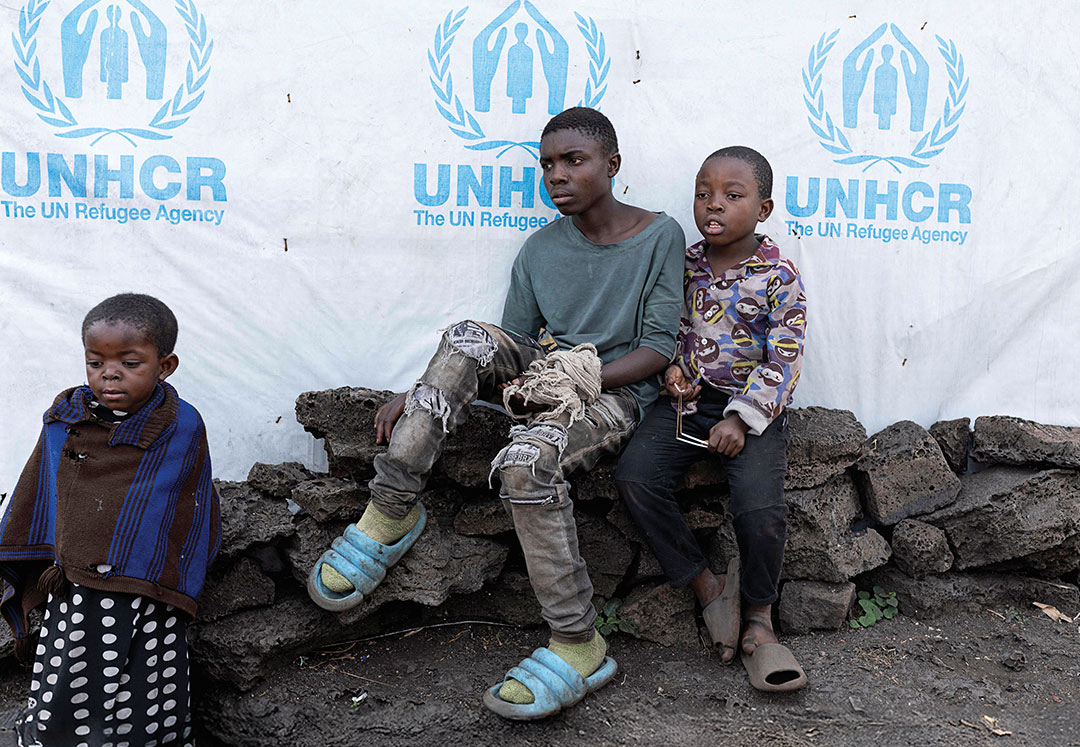
In the DRC, the rebel group M23 has established local administrations, collected taxes from businesses and individuals, and provided some basic services. In a 2024 report, researchers concluded that M23 was looking for long-term local political power in the eastern DRC using historical land disputes, political marginalization, and illicit taxation to expand and solidify its authority.
“M23’s disruptive strategy aims to replace Congolese authorities and overhaul local governance in areas it controls in eastern DR Congo,” researchers Ken Matthysen and Peer Schouten wrote in The Conversation Africa magazine. “Many Congolese we spoke to perceive M23’s main aim to be control of power at the local level — undermining the existing authorities.”
A key aspect of M23’s shadow governance is its control and exploitation of the country’s abundant natural resources, such as iron ore, gem-quality diamonds, gold and coal. M23 uses the resources to generate revenue, create economic incentives for local support and establish international connections through illegal trade networks.
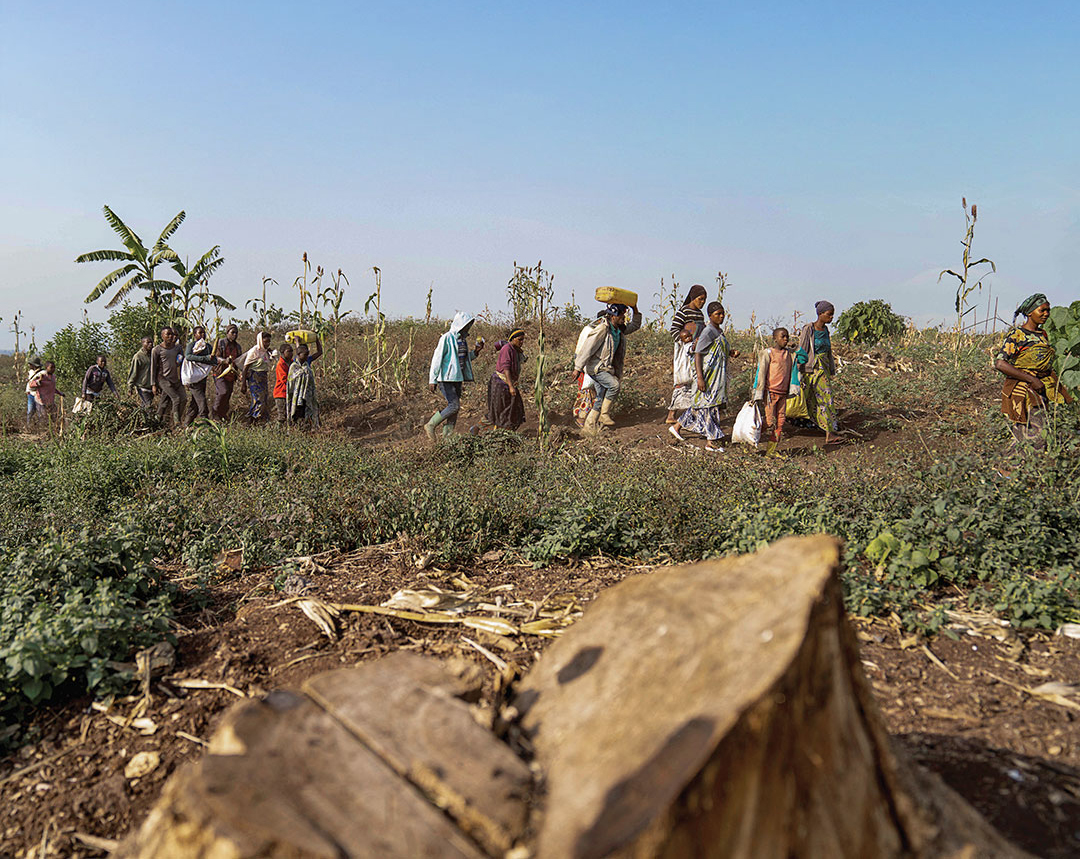
REGIONAL THREAT
Shadow governance by terrorist and rebel groups in Africa threatens not just individual countries but also entire regions. Such governance imperils the legitimacy of the state and can give an opening to coup leaders who promise to reassert control.
The governance provided by terror groups generally means extortion without actual benefits other than some protection — a racket often called a mafia. It is characterized by violence, strict ideological control and exploitation of local resources. The long-term sustainability of these shadow governance structures is doubtful, as they face challenges from state forces and competing nonstate actors.
Addressing this issue requires a multifaceted approach that goes beyond military solutions. Strengthening state institutions, addressing underlying grievances and providing viable economic alternatives are crucial steps in undermining the appeal and effectiveness of shadow governance by irregular forces. In Somalia, researcher Williams says, the government must stop al-Shabaab’s revenue flows by prioritizing the professionalism of agencies responsible for financial, intelligence and judicial functions. The case of Mali’s reconciliation efforts with Tuareg rebels offers a potential model for addressing these challenges through political means rather than solely relying on military force.
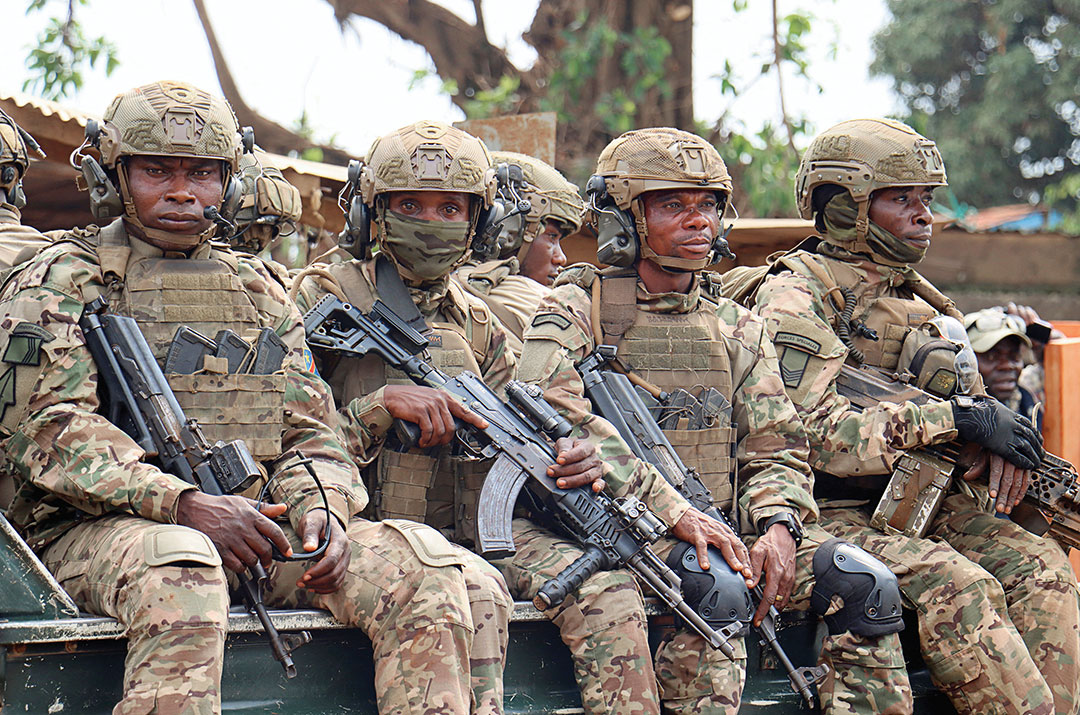
As Africa continues to grapple with governance challenges and violent extremism, understanding and addressing shadow governance by nonstate actors will be crucial for promoting stability and development. As countries struggle to coordinate military responses to prevent extremist insurgencies, they must act quickly to tackle the structural fault lines and vulnerabilities that let violent extremist groups establish themselves, including the difficult issues of land rights and allocation of natural resources.
“Whether in Benin, Côte d’Ivoire, Ghana, or Togo, relations within and between rural communities are fragile, as are citizens’ relations with local authorities, security forces, and self-defense groups,” wrote Anouar Boukhars of the ACSS in 2023. “It is therefore critical that states redouble their efforts to manage community-level disputes, bolster local conflict resolution mechanisms, and supervise local self-defense groups.”
By showing that they can reliably provide services, security and justice, African nations can make it harder for terrorist and rebel groups to subvert legitimate governments.
Al-Shabaab’s Spy Network
ADF STAFF
Within the al-Shabaab terrorist group, a secret service known as Amniyat is particularly feared as a disciplinary force and spy agency.
Al-Shabaab includes three independent security bodies: the Hesbat, the Jabhat and the Amniyat. The Hesbat, with the help of its religious police, implements a harsh version of Sharia in territories under al-Shabaab control. The Jabhat specializes in communication, explosives, logistics, medicine and the media. It is responsible for operations involving military units, researchers say. The Amniyat is the de facto intelligence unit, a network of spies.
Hussein Sheikh-Ali, a former security advisor to the Somali president, said, “The Amniyat is the veins of the organization. It is all-powerful. If the Amniyat was destroyed, there would be no al-Shabaab.”
The secret agents are everywhere. Researchers say the Amniyat recruits local and government officials as informers who provide intelligence for attacks in Mogadishu and other parts of the country.
“It is the most dreaded, integral, and organized branch of al-Shabaab,” wrote researchers Gábor Sinkó and János Besenyő in a 2023 study for Connections: The Quarterly Journal. “It seems Amniyat uses intel and counter-intelligence to provide critical analysis of their opponents’ vulnerabilities. The secret service recruits its members from the rank of the group’s fighters; however, the most important recruitment pool is the locals, who are approached based on recommendations from reliable and paid informants. While an increasing number of women find safe shelters, relay messages, and provide food, most of their operatives are educated young men.”
The intelligence wing has about 500 to 1,000 members, researchers say. In addition to intelligence, it operates clandestine activities and plans attacks.
“Like many terrorist organisations, Al-Shabaab commits high resources to the group’s survival,” wrote researcher Bobby Payne in a 2024 report for the London-based intelligence company Grey Dynamics. “This is where the Amniyat’s operations are vital. It tasked Amniyat operatives with drilling fear into Al-Shabaab’s members by any means necessary. They are an omniscient organisation that is to limit dissent within the group and prevents penetrations by state intelligence organisations, especially Somalia’s [National Intelligence and Security Agency].”
Its methods, Payne wrote, include imprisonment, assassination, and execution of potential moles and those who they believe are not fully loyal to the group’s cause.
The Amniyat also handles al-Shabaab finances, Payne reported.
“They gain most of the finance through the taxation of local businesses,” he wrote. “Especially vehicles that transport goods through Al-Shabaab-controlled territory. The people of the largely Al-Shabaab-controlled south of Somalia, pay three taxes: Al-Shabaab’s tax, Islamic State tax and the regular Government tax. As a result, Al-Shabaab brings in $15 million per month in illegal taxes.”

